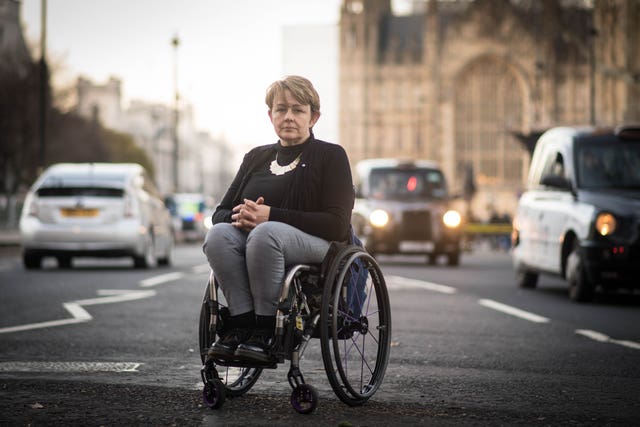Exclusion threat should be written into coaching licences, says abuse survivor
Former athlete Mhairi Maclennan says abuse is endemic in sport.

Coaching licences and contracts must contain provisions for permanent exclusion from a sport where an individual is found guilty of any form of abuse, a survivor has said.
Former athlete Mhairi Maclennan suffered abuse at the hands of her coach John Lees, who was subsequently banned from coaching for life by British Athletics.
Maclennan has now co-founded Kyniska Advocacy to campaign for the protection of women in sport.
She believes physical, sexual and emotional abuse is “endemic” in sport and insists the right level of deterrent needs to exist to protect athletes.
“When these types of policies are written into, for example, a coaching licence, people are aware of what they’re signing up to, that if they break that clause, that’s it,” she said at the ‘Is Sport Safe? Stamping Out Abuse In Sport’ webinar on Wednesday.
“I do believe that when we are playing with people’s safety, well-being and mental health, we shouldn’t take risks, the risk is too high.
“The stories are piling up and it is difficult to grasp the scale of the problem without feeling overwhelmed. Sport fails to recognise that abuse in sport Is endemic, and this has to change.”
Maclennan talked about the unique issues around safeguarding in sport – how coaches and others in positions of trust can seem untouchable and are hero-worshipped, the tight-knit social circles in sport which make reporting so difficult, and the fear athletes have of ‘rocking the boat’, and potentially damaging their own careers and lives and those of the people they love by speaking out.
She said the focus has often been on protecting children but that those over 18, including many with disabilities and especially adult women, needed stronger protection.
“While new and crucial policies like the positions of trust legislation, which prohibit relationships between coaches and athletes under 18, are really welcome and incredibly important, they do fail to protect young adults,” she said.
“The sad thing is that if this legislation had ever been suggested to cover all ages, it would never have come into law.”
A variety of Olympic sports have held inquiries over allegations of athlete mistreatment in recent years, including cycling and gymnastics.
Baroness Tanni Grey-Thompson, who five years ago called for the creation of a sport ombudsman created by Government to hold governing bodies to account for their duty of care provision, was asked whether anyone had looked at the cost per abuse survivor of each Olympic and Paralympic medal.

“What I would say though is that if you add up the cost of all the reviews – cycling, canoeing and then the ones that aren’t public, plus the Whyte Review, it costs a lot of money.”
The Whyte Review focused on abuse allegations in gymnastics. Eloise Jotischky, who was the first athlete to reach a legal settlement and receive an apology from British Gymnastics concerning the abuse she suffered, also spoke at the webinar.
She said she had been subjected to “ritual humiliation, verbal harassment, bullying and body-shaming” and added: “This is not a bad-apple problem. This is systemic and this was allowed to happen because of a refusal to accept responsibility amongst the top layers of the governing body.”





